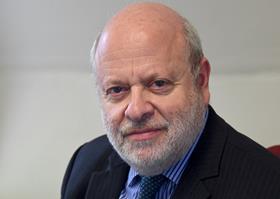In a few weeks, we might be dependent on World Trade Organization (WTO) rules for all our trade.

The multilateral trading system is under great strain. For instance, its appellate body is close to collapse because of US blocking of new judges. But the overall system is still operating, and we lawyers will need to watch it even more closely, since it may be our sole avenue to freer markets. Although multilateral talks to open services markets in general are going nowhere, in part because the current American administration is not interested, there are talks in other areas of trade. One of these covers e-commerce.
In January 2019, 76 partners - the European Union and 48 other members of the WTO - decided to start negotiations to put in place e-commerce rules for global trade. The aim is, among other things, to encourage e-commerce and strengthen consumers’ trust in it.
The negotiations are likely to cover a number of topics of interest to lawyers, such as:
- facilitation of electronic transactions (e.g. electronic signatures and other trust services, electronic authentication);
- consumer trust (e.g. online consumer protection, unsolicited electronic communications, access to redress);
- cross-border data flows, data localisation requirements and personal data protection and privacy;
- e-commerce-related aspects of intellectual property rights, including trade secrets.
Thirteen countries, with the EU counting as one, had submitted text proposals by May 2019. The areas identified so far as those where WTO members would most likely be able to agree on a common set of rules include e-signatures, e-contracts and consumer protection. Members would be required to recognise electronic signatures and contracts and set fair and transparent criteria for their recognition. Many countries also agree that governments should not force a seller to disclose source codes for software. Most also agree that there should be a set of basic principles to ensure trust for consumers – the question will be how detailed or prescriptive the rules will be.
However, negotiators have not so far focused on some of the most controversial topics such as freedom of personal cross-border data flows, or those related to ‘market access’ – opening markets directly – and non-discrimination rules. There is also no clarity yet as to whether members will aim for a completely new treaty or for an annex to the WTO’s GATS agreement on services, whose Article VI covers ‘electronically traded services’.
The principal concern for lawyers is focused, as always, on confidentiality and privilege. In any negotiation on cross-border data flows and data localisation requirements, we must insist on the importance of affording full protection for client confidentiality. The kind of risks we face are:
- data might be susceptible to unauthorised access either physically through unauthorised access to the premises in which the servers are located or electronically, either by the provider’s employees or sub-contractors, or by outside parties, for example hackers, via the Internet;
- data might be processed on servers in countries which have fewer or less effective legal protection mechanisms for electronically stored information than are mandated by their domestic legislation;
- providers might be subject to local rules obliging them to hand over lawyers’ data to foreign national authorities.
- long-arm foreign legislation might seek to impose obligations to disclose data upon request to national authorities, not only upon home state companies providing storage, but also on foreign companies which are ultimately owned by home state companies.
Lawyers have concerns in other parts of the negotiations, too. For instance, with regard to electronic signatures and authentication, negotiators should learn the lessons from previous cross-border co-operation which has already found solutions for electronic transactions. Many of the current systems for conducting business with national courts and other national authorities enable a lawyer’s identity as a lawyer to be recognised domestically, enabling lawyers to undertake transactions on behalf of clients. Within Europe, the cross-border aspect of such transactions is already finding solutions through large-scale projects, such as the e-CODEX project which relates to justice. These solutions should be applied globally, if possible, without reinventing the wheel.
There should also be clarity and consistency in work undertaken by other international organisations. For instance, the United Nations Commission on International Trade Law (UNCITRAL) has been working for several years on e-commerce matters, and has recently focused on identity management and trust services. Rather than starting again in new negotiations, existing work by international organisations should be taken into account by the WTO negotiators.
The UK government is currently represented via the EU in these negotiations. We can assume that it will become one of the parties in its own right after Brexit, probably – at least initially – sticking close to the EU’s current position, to which it has presumably contributed and consented. We need to be sure that it is aware of our lawyer concerns as the negotiations continue.
Jonathan Goldsmith is Law Society Council member for EU matters and a former secretary general of the Council of Bars and Law Societies of Europe. All views expressed are personal and do not necessarily reflect the views of the Law Society Council































No comments yet